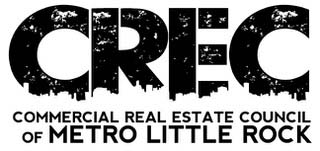The Value of Pre-Planning in Commercial Real Estate
September 2-8, 2024
By Susan Hill Gelé
Pre-planning might be most frequently associated with retirement, but it can certainly hold an important role in commercial real estate (CRE).
A basic planning process for a commercial real estate project might focus primarily on the property, potential clients, and funding. At the opposite end of the scale, project partners could get completely lost in creating and completing a plan that included detailed objectives, comprehensive scheduling, cost management strategies, feasibility studies, risk mitigation measures, building material specs, and more.
Planning comes easier to some, so creating a generalized approach that will move the project through the required steps to completion would be helpful to everyone involved. A planning template is a tool that can be reused with adaptations for each deal and will ensure smooth success. Knowing the strengths and weaknesses of each individual and of each part of a team helps in finding a method that suits each transaction and gets everything done.
At a minimum, each project needs a scope or definition, identification of resources, timeline, process for implementation, and evaluation. A plan using an outline appropriate to the project can be created in software using a spreadsheet, an app using project management software, or internally using one’s own thoughts. Using apps or cloud-based software allows the entire team to have access to documents that are updated and available to all. Reminders from apps or software can also help members meet deadlines and prompt requests for help when there is trouble meeting those deadlines.
Depending on the venture, the planning requirements may differ. If the assignment is to sell a piece of land, some of the steps – like timeline – can’t necessarily be nailed down. However, a new development is going to need an expansive project management plan that addresses a myriad of details.
Each segment of CRE has its own requirements, and having connections with specialists in each area is extremely helpful in avoiding having to research and/or recreate the implementation process each time. While no one likes to meet for meeting’s sake, having everyone hear the same information at the same time is extremely beneficial as well as time saving. Ensuring that everyone involved understands the goals for the project can help get the details confirmed while not getting lost in the weeds of working through those details. Using the experts’ wisdom helps move the process along, but involving the client in planning is also essential. Knowing there is a specific need for having a light switch or door in a certain spot before the approval of the engineer’s and architect’s plans or before the contractor frames the space saves time, money, and frustration.
Once the plan is established and the stakeholders are onboard and informed, there will be hiccups that threaten to derail the organization and implementation of the plan. As long as the initial goal in the project description hasn’t changed, a plan can be adapted. Being prepared to adjust rental rates or property positioning, opt for phased development, utilize back up suppliers, and research or approach alternative financing options are all possibilities that can be incorporated into the process.
When the wheels fall off is when the community of CRE professionals can be most helpful. Having access to and being able to draw from a network of experienced professionals who have experienced the same types of hiccups and will share their solutions and suggestions can help get a plan back on track. This is also a time when communication is the most important. Having options helps reassure a client as well as project partners. Clearly summarizing the challenges and proposed solutions based on the original plan shows control of a stressful situation and a way forward to still accomplish the original goal.
The last step of planning – evaluation – is frequently skipped or minimized. From the perspective of creating a template plan for CRE projects, evaluation allows an opportunity for identifying areas of improvement for a generic plan to guide future projects. When the process used for each deal is even modestly evaluated, the effectiveness is clear and illustrates strengths and weaknesses. When a team is involved, evaluation creates accountability and gives each member of the team more information on how the partners fit into a network of trusted collaborators. Evaluation also calculates the usage of resources, both financial and professional. Analyzing the project cements the process into the muscle memory of planning for future similar deals, building experience and understanding of the process. Having a debriefing session for the team allows for a little celebration or relief – whatever the case may be.
The cliché of “failing to plan is planning to fail” seems a little excessive and dramatic. However, there is power in a plan. There is even more power in a plan that is organized, collaborative, and communicated. Creating a tool that wields that power for CRE deals is something worth examining.
Susan Hill Gelé is the executive director of the Commercial Real Estate Council of Metro Little Rock.




